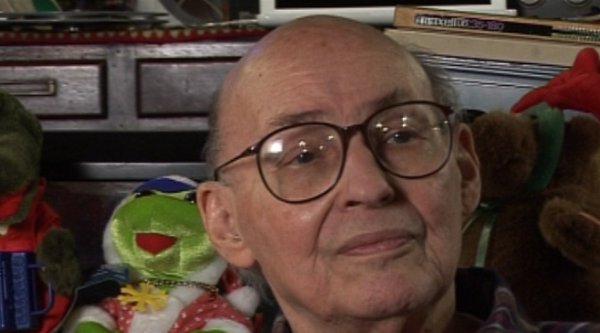NEXT STORY

New philosophy and the historians of thought
RELATED STORIES

NEXT STORY

New philosophy and the historians of thought
RELATED STORIES


|
Views | Duration | |
|---|---|---|---|
| 91. The impact of the Society of Mind | 1728 | 03:06 | |
| 92. Why the Society of Mind is crucial for understanding... | 1694 | 01:56 | |
| 93. A theory of why evolution is a slow process | 1715 | 03:15 | |
| 94. Biological plausability for the Society of Mind theory | 1560 | 04:04 | |
| 95. Advising Stanley Kubrick on 2001: A Space Odyssey | 2 | 1974 | 02:51 |
| 96. Stanley Kubrick forgets he made Dr Strangelove | 2 | 1994 | 01:38 |
| 97. What was Stanley Kubrick like? | 2 | 2393 | 01:03 |
| 98. Stanley Kubrick scraps the tetrahedron | 1 | 1948 | 02:11 |
| 99. I created part of 2001: A Space Odyssey | 1 | 1805 | 00:46 |
| 100. Warren McCulloch: For whom the world was a stage | 1827 | 04:25 |


That strange period around the beginning of the artificial intelligence laboratory when I spent a lot of time... sometimes I went on trips with this wonderful man and Warren McCulloch had – at that time – he was already... he was one of the great pioneers of cybernetics. So, in fact before Norbert Wiener did... wrote his famous book called Cybernetics, which I think came out in 1949, McCulloch had been working on neural networks – maybe the first – and he had a little group of... he had a 14 year old prodigy named Walter Pitts in Chicago and they worked out this paper that was published in 1943, so, that’s many years before Norbert Wiener came on the scene. And he had been a psychiatrist, a physician... neurologist really, and started the neuroscience laboratory at MIT and was a very dramatic world class actor figure. And I went on trips with him and... and it gave me a new view of the world because... when McCulloch... I remember one day he said: 'I’m going to explain something to the psychologists.' And he had a sort of grand view of... of this... the importance of cybernetics, which was correct. Otherwise, you would have said he was delusional.
And so, I went with him and it was a little meeting with about six or seven people. But he was on the stage and I realized that he was talking to the whole world. Normally, people are talking to their audience, but he would have very elaborate constructions and beautiful ways of saying things. But I had never met anyone for whom all the world was a stage; I think some... as someone put it. And from that, I got some sense that you shouldn’t waste people’s time with things that aren’t very important. Of course, nobody... nobody could live out such a commandment but, I must have spent most of a year just hanging around him and trying to understand how he could... see such importance in ordinary things. So in a way, it’s like Feynman, who would look at a little wave on the water and understand how the universe works. And McCulloch was very much like that for psychological things. He hated Freud because – in retrospect I think – because Freud was the best psychologist before him. And, you know Freud actually invented various forms of artificial intelligence and unlike the behaviorists, Freud thought of the mind as really a rather complicated thing not... not just a little feedback loop or something and... and imagined that it had many different structures which weren’t all compatible with one another and... so he... in retrospect, he had the first society of mind because it wasn’t just the conscious and unconscious, but he also had these sensors and whatever. Anyway, that was a... about a year when I got attached to this McCulloch and somewhere I wrote, maybe 100 years from now he will be seen as the greatest 20th century philosopher along with Russell and a few people like that.
Marvin Minsky (1927-2016) was one of the pioneers of the field of Artificial Intelligence, founding the MIT AI lab in 1970. He also made many contributions to the fields of mathematics, cognitive psychology, robotics, optics and computational linguistics. Since the 1950s, he had been attempting to define and explain human cognition, the ideas of which can be found in his two books, The Emotion Machine and The Society of Mind. His many inventions include the first confocal scanning microscope, the first neural network simulator (SNARC) and the first LOGO 'turtle'.
Title: Warren McCulloch: For whom the world was a stage
Listeners: Christopher Sykes
Christopher Sykes is a London-based television producer and director who has made a number of documentary films for BBC TV, Channel 4 and PBS.
Tags: Cybernetics, Chicago, 1943, MIT, Warren McCulloch, Norbert Wiener, Walter Pitts, Richard Feynman, Sigmund Freud, Bertrand Russell
Duration: 4 minutes, 26 seconds
Date story recorded: 29-31 Jan 2011
Date story went live: 12 May 2011